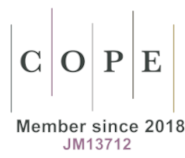Vietnam Game Between USA and China
DOI:
https://doi.org/10.18778/1641-4233.22.04Słowa kluczowe:
Vietnam foreign policy, U.S., China, diversification strategy, multipolarisation of partnersAbstrakt
Vietnam tries to respond to changing international situations, while attempting to stay in accordance with its own ambitions. China and the USA, the two superpowers, are the most important partners of Vietnamese strategy, which is determined by these two countries. The most important economic partner and ideological ally is China. But both sides have some serious problems to resolve such as maritime disputes. The situation imposes the need to seek counterbalance, a reliable ally who provides protection for its own interests. So Vietnam looks to balance improved relations with China while seeking deeper and multidimensional relations with the USA. The United States offers many advantages that are attractive to Vietnam. Inevitably, economic ties and new projects e.g. TPP, political, cultural and scientific cooperation make up these advantages. However, the United States can only provide support for the Spratly and Paracel Islands’ dispute and improving cooperative measures in the South China Sea with the presence of U.S. naval vessels and dialogue that assists Vietnam defense. Vietnam has again become an element in the American strategy of pivoting to Asia.
Pobrania
Bibliografia
The 7thNational Congress Document, Hanoi: Publishing House, 1991.
Zobacz w Google Scholar
12thCongress of the CPV, XII Sjezd Kompartii Vietnama. Dokumienty i ekspertnyje ocenki, Moskwa 2016.
Zobacz w Google Scholar
Edward, V., Anh, Phan. Managers and management in Vietnam. 25 Years of economic renovation (doi moi). London and New York: Routledge, 2013.
Zobacz w Google Scholar
DOI: https://doi.org/10.4324/9780203100974
Elek, A., U.S. commits to ASEAN integration, East Asia Forum. Web. http://www.eastasiaforum.org/2012/11/25/us-commits-to-asean-integration/
Zobacz w Google Scholar
Fergusson, I.F,. McMinimy, M.A., Williams, B.R., The Trans-Pacific Partnership(TPP): In Brief. Web. https://www.fas.org/sgp/crs/row/R44278.pdf
Zobacz w Google Scholar
Fravel, M.T., China’s Strategy In the South China Sea, “Contemporary Southeast Asia”, vol. 33 (2011), no. 3, pp. 292–319.
Zobacz w Google Scholar
Hoang Viet, ASEAN and the Prospects for Solution to Disputes In the South China Sea, [in:] The South China Sea: Cooperation for Regional Security and Development, ed. by Tran Truong Thuy, Hanoi 2010.
Zobacz w Google Scholar
http://taylorfravel.com/documents/research/fravel.2011.CSA.china.strategy.scs.pdf
Zobacz w Google Scholar
Kurlantzick, J., A China-Vietnam Military Clash. Web. http://www.isn.ethz.ch/Digital-Library/Articles/Detail/?lng=en&id=193951
Zobacz w Google Scholar
Lokshyn, G.M., Jużno-kitajskije Morie: Do mira i spokojstwija jeshcho dalieko, Tichookieanskoje Obrazowanije 2012–2013, Moskva 2014.
Zobacz w Google Scholar
Manyin, M.E., US-Vietnam relations in 2014: Current Issues and Implications for U.S. Policy. Web. https://fas.org/sgp/crs/row/R40208.pdf
Zobacz w Google Scholar
Parameswaran, P., US, Vietnam Deepen Defense Ties. Web. http://thediplomat.com/2015/06/why-vietnam-and-the-us-are-deepening-defense-ties
Zobacz w Google Scholar
President Tran Duc Luong visit to China. Web. http://www.fmprc.gov.cn/eng/4471.html
Zobacz w Google Scholar
Secretary Kerry: September 2016 “Remarks on the Trans-Pacific Partnership”. Web. http://www.state.gov/secretary/remarks/2016/09/262551.htm
Zobacz w Google Scholar
Tarling, N., Regionalism in Southeast Asia. To foster the political will., London and New York: Routledge, 2006.
Zobacz w Google Scholar
DOI: https://doi.org/10.4324/9780203966938
Thayer, C., China and Vietnam Eschew Megaphone Diplomacy. Web. http://thediplomat.com/2015/01/china-and-vietnam-eschew-megaphone-diplomacy/
Zobacz w Google Scholar
Valencia, M.J., South China Sea Agreement: Close but No Cigar, “Taipei Review”, January, 2013, 34–37.
Zobacz w Google Scholar
Vietnam Integrated Trade Solution. Web. http://wits.worldbank.org/CountryProfile/en/Country/VNM/Year/2015/TradeFlow/Import
Zobacz w Google Scholar
Pobrania
Opublikowane
Jak cytować
Numer
Dział
Licencja
Prawa autorskie (c) 2018 International Studies. Interdisciplinary Political and Cultural Journal

Utwór dostępny jest na licencji Creative Commons Uznanie autorstwa – Użycie niekomercyjne – Bez utworów zależnych 4.0 Międzynarodowe.

















